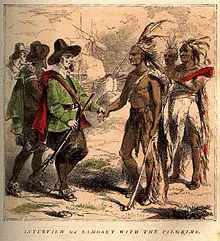Sir Francis Bacon
Sir Francis Bacon was a statesman and English philosopher in the 1500s. He is most well-known for developing the scientific method that is used in science today and for being influential during the scientific revolution.

Where did they live?
Bacon was born in 1561 in London, England. He was the son of Sir Nicholas Bacon, who was Lord Keeper of the Seal. That position was to have physical possession of the Great Seal of England. Bacon’s mother was Lady Anne Cooke Bacon.
Family members on both sides were heavily involved in the royal court and were statesmen and advisers to royalty. He was educated at Trinity College, Honourable Society of Gray’s Inn. He was considered to be someone that didn’t think like the others of his time and bucked the system at every turn. His teachers taught traditional Aristotelianism, and Bacon wanted to learn more about classical antiquity and Renaissance humanism.
Facts about Sir Francis Bacon
- Although Bacon’s primary profession was as a lawyer, he was forced to resign due to accusations of corruption.
- Once he was done with school, Bacon worked under the British Ambassador to France, Sir Amyas Paulet. He only held this position for two years because his father died, and he had to go back to England.
- When his father died, Bacon was still a teenager and was financially broke. His uncle, Lord Burghley, turned him down for work. He did get a touch of luck when he got a job in the House of Commons as a member of Cornwall.
- Bacon later returned to Gray’s Inn to get his degree, and in 1582 he was given the appointment of the outer barrister. Still young, he composed his first political memo in 1584 in a Letter of Advice to Queen Elisabeth. This letter was critical in getting his career in politics started.
- Francis Bacon continued with his job from 1584-1617 at Parliament. It was then that he expanded his activities in politics, law, and the royal court. By 1621 he was the Viscount St. Albans, which was a high honor, except that same year he was impeached by Parliament for corruption due to the accusation of accepting bribes.
- Most of what we know of Bacon happened after he retired. It was then that he put his focus on the philosophy of science. He devoted a lot of time in an attempt for an outline for a scientific method so that it would be exact. His interest was in creating a technique that required tangible proof with facts that could be experienced or seen.
- Bacon thought that a perfect scientific approach would be a tool for the improvement of humanity. He required experimentation that had the gathering of data, the analysis of data, performing experiments, and observing the order to list the natural truths in an organized manner.
- Bacon wanted to express science in a definitive way that could create experiments that addressed a hypothesis, offered repeatable tests, and came up with a conclusion as to whether the hypothesis was correct.
- Much of science during Bacon’s time involved mysticism, alchemy, and so-called magic. Bacon wanted to create specific and definable situations that could be measured and proven.
- Bacon was a thinker ahead of his time and looked at the world in new ways. He became famous for some of his writings and the way that we approach science. The influence has been so significant that his way of thinking is called the “Baconian method.”
- During one of his outdoor winter experiments, Bacon became ill and later developed bronchitis. He died in 1626.
What did you learn?
What was the profession that Sir Francis Bacon went to school for?
lawyer
What is the method of thinking called today that was influenced by Bacon?
Baconian method
What did he call his focus in delving into different ways of seeing science?
philosophy of science
Why was Bacon impeached by Parliament?
accusation of accepting bribes
What was the political memo called that launched his career?
mysticism, alchemy, and so-called magic



